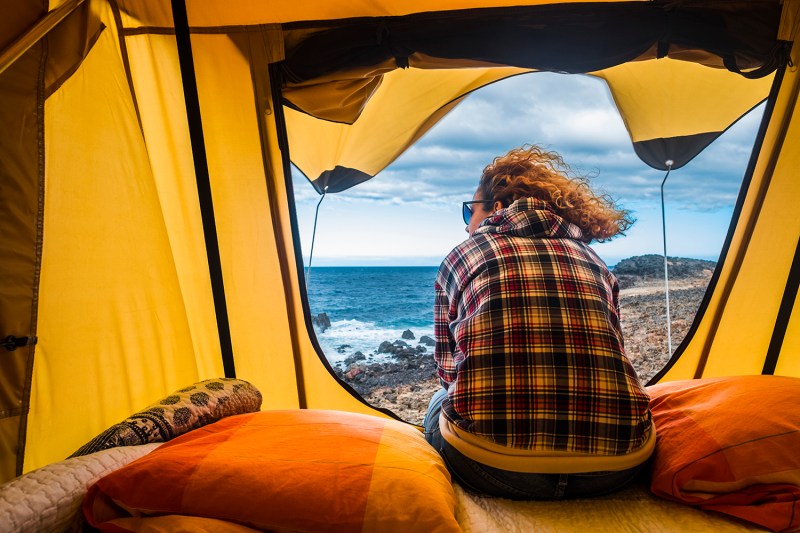
Rooftop tents (RTTs) are the darlings of the overlanding world right now. It seems nothing gives you more social media cred than showing off a new rooftop tent on your latest epic, off-grid camping expedition (bonus points if it’s captured with drone footage).
It’s no surprise that Instagram and YouTube are full of rooftop tent videos. That’s all with good reason: They’re versatile, comfortable to sleep in, and look damn cool to boot. Plus, they provide most ordinary street vehicles with ultralight travel trailer-esque utility without the sky-high price tag of actually buying an RV. But, there are downsides, especially for softshell rooftop tents. Some are obvious, and some are not so obvious, especially for first-time buyers.
If you’re shopping for rooftop tents right now, you no doubt know all the advantages. You don’t need us to convince you to buy one. Before you drop $3,000 on the best rooftop tent you can find, however, consider the downsides, too. We’re not trying to talk you out of buying one and buying a car tent instead, but it’s worth understanding what you’re getting into.
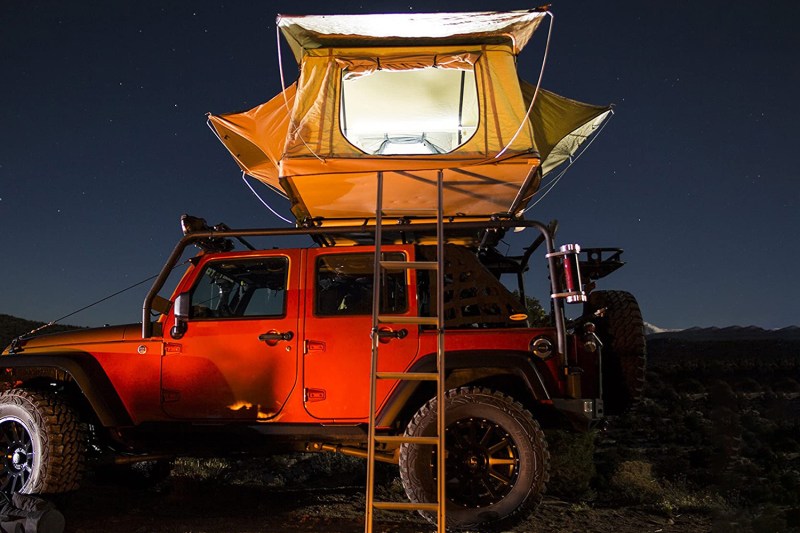
What is a rooftop tent?
Before we get into the reasons to not purchase a rooftop tent, let’s clear up exactly what a rooftop tent is.
An RTT is a portable shelter that mounts to the roof of a vehicle. It’s a type of elevated camping tent that keeps you off the ground. They are typically made of durable materials that can withstand harsh weather conditions. Rooftop tents often come with built-in mattresses, which makes them more comfortable than ground tents. They are easy to set up and take down and don’t take up any space inside the vehicle. On the other hand, a car tent is a portable shelter that attaches to the back of the vehicle. It’s a non-elevated camping tent, which can be less convenient than a rooftop tent.
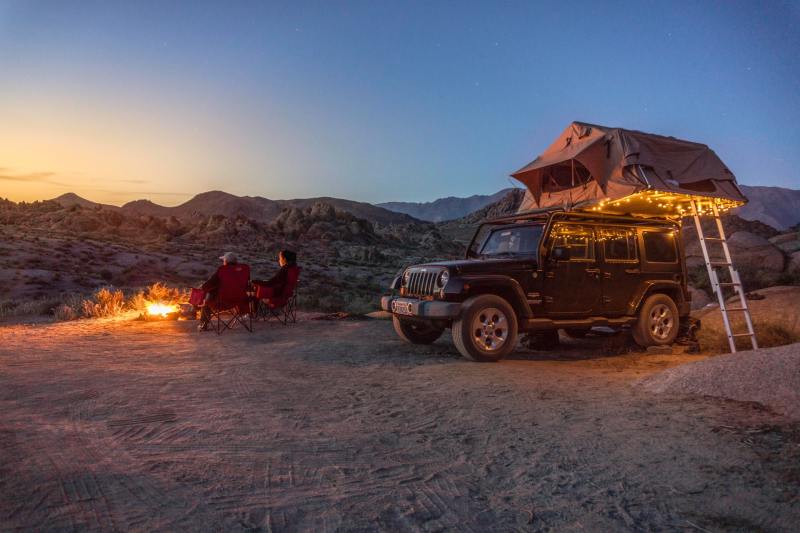
Rooftop tents are expensive
If you already own or are shopping for a rooftop tent, you’re aware of the most obvious drawback: the price. Rooftop tents are expensive. Some of the best camping tents on the market cost less than $400, while halfway-decent, entry-level rooftop tents start north of a thousand dollars. For upgraded models that are lightweight, made with better materials, and boast integrated features like LED lighting, solar panels, and heated back massagers, that price balloons quickly to several thousand dollars or more.
Plus, pickup owners will likely need to purchase a special rack to mount a new RTT in the bed of their truck. Some car and SUV owners may also need to buy a roof rack or additional hardware to mount a new RTT to their vehicles. That’s an additional cost on top of the tent itself. It all adds up fast.

They “trap” you
This might be the best reason not to buy a rooftop tent, and the one most prospective buyers overlook. Camping or overlanding with an RTT means that your shelter and transportation are one and the same. Once you make camp and set up your tent, you can’t explore the surrounding area with your vehicle without breaking it all down first and resetting it up later.
That might not seem like a big deal, especially with many RTT owners on social media highlighting their (completely unrealistic) sub-60-second breakdowns. In reality, many of the best rooftop tents take ten to 20 minutes or more to break down completely and another ten to 20 minutes to set up again. Depending on your exploration style, this can easily waste an hour or two every day.
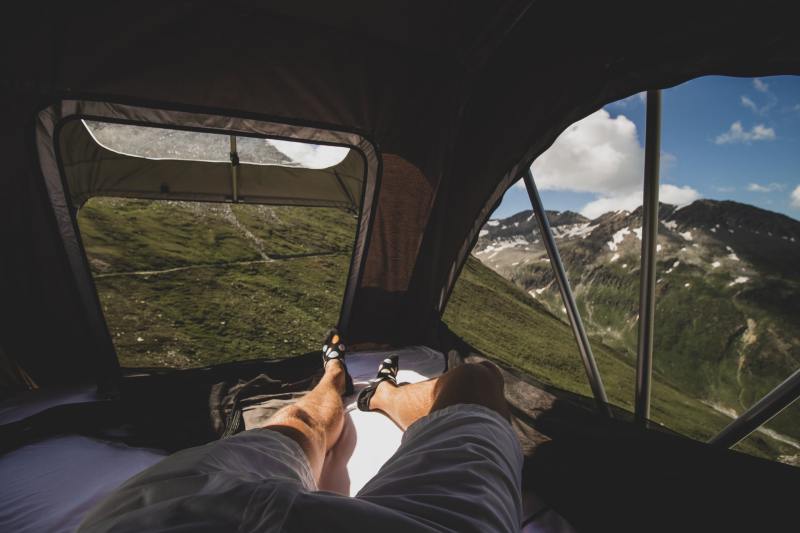
Rooftop tents are surprisingly loud
If you’re a light sleeper, know that sleeping in a softshell rooftop tent can be loud — like, very loud. It’s not surprising since they’re elevated off the ground by design and made of a complex web of overlapping fabric. Wind buffeting, especially in high-wind areas, can cause that fabric and rainfly to flap violently to the point of being downright deafening. For most of us who escape into the backcountry for peace and quiet, that fact alone can be a deal breaker.
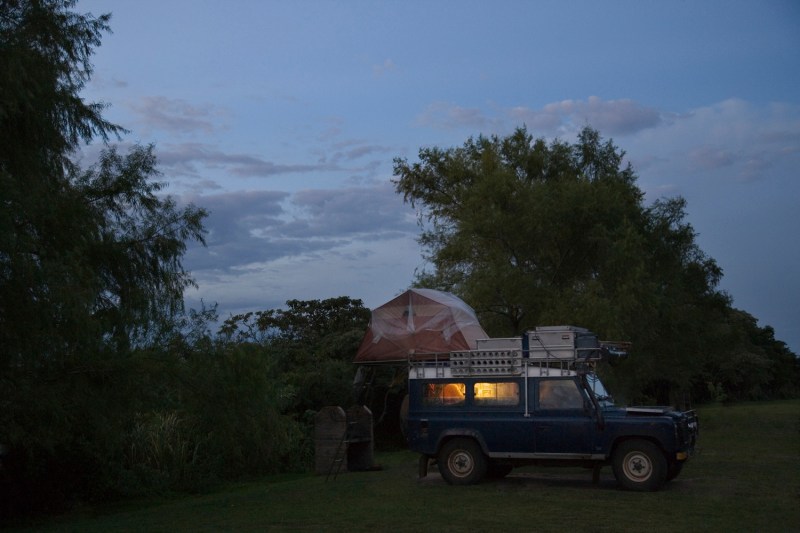
They require level ground
Unless you’re a bat or a tree sloth, you probably enjoy sleeping in a reasonably level position. Leveling a ground tent is easy. Before pitching, just move it around in the dirt and lie down to check for level. But leveling a rooftop tent means leveling your entire vehicle, which often requires leveling blocks (or at least a decent-sized rock or two), a bubble level (if you want to save yourself some serious headaches), and potentially driving and reversing for a while every time you make camp. It’s not difficult, but trust us, it is tedious.
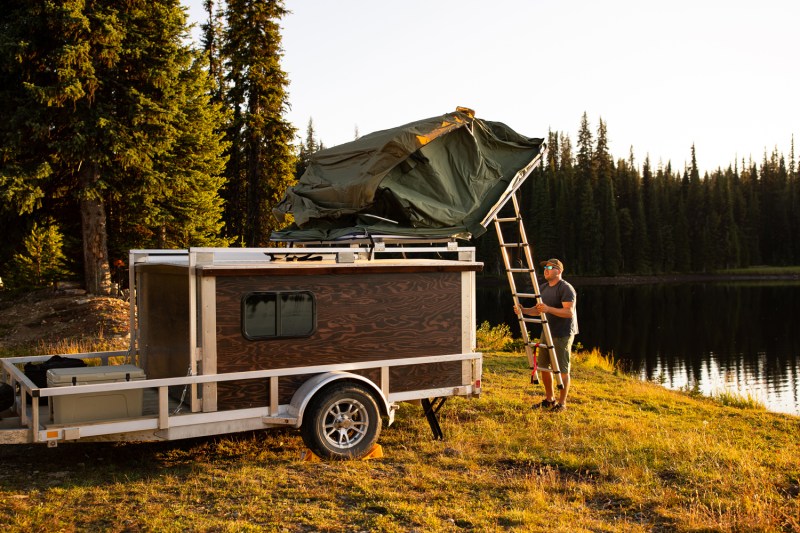
They don’t come off
More specifically: They won’t come off. Technically, they’re not permanent. But most models weigh between 100 to 200 pounds. Add to that they’re clunky and cumbersome, which means you’ll almost certainly need a friend or two to help with the uninstall. Realistically, once you install yours, you’re unlikely ever to take it off, even when you don’t need it. It’s more convenient and back-saving to leave it on all the time. That leads to the next point.
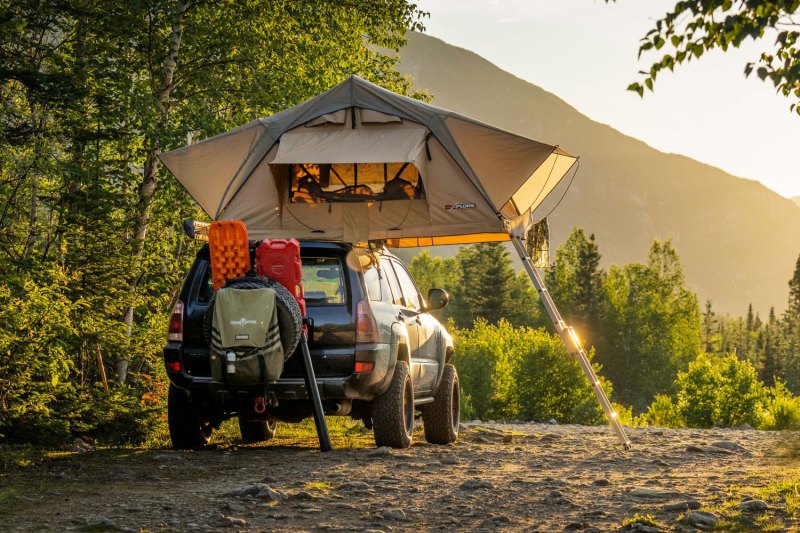
Rooftop tents kill your gas mileage
No matter how lightweight or streamlined the RTT is, your gas mileage will take a hit after installing one. It’s simple physics. Your vehicle will be less aerodynamic, especially on the highway, and forced to move more weight than usual. From a gas mileage perspective, it’s like having an additional adult passenger in your car at all times. Losing a couple of miles per gallon might not seem like much but for gas-hungry trucks and SUVs, even a minor hit to fuel efficiency stings at the gas pump.
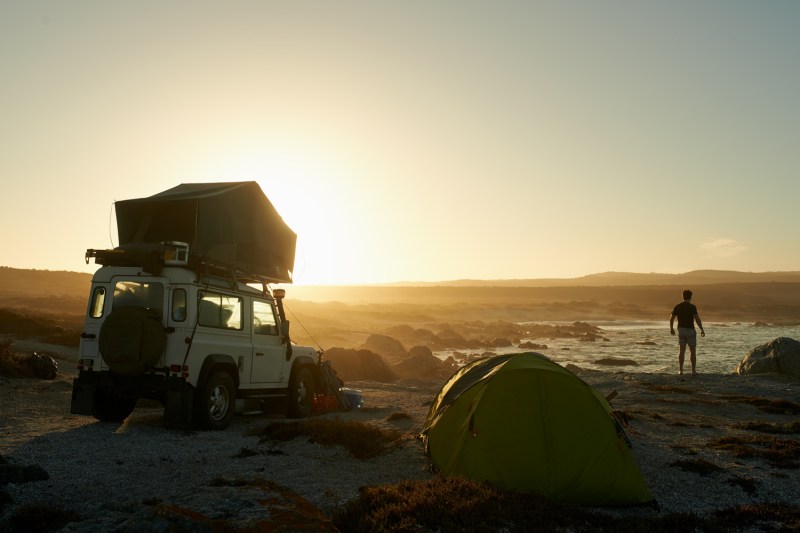
They don’t actually protect you from critters
One apparent benefit of rooftop tents over traditional camping tents is being elevated off the ground and away from critters. Realistically, anything that crawls on the ground has no problem climbing the side of your vehicle and onto — or into — your tent. Depending on where you’re
With all of this said, we don’t hate rooftop tents. They’re awesome for the right style of camper with the right discretionary income. But if you’re considering buying one, don’t rely solely on overlanding influencers for your research. It’s just not as simple as they make it look.


